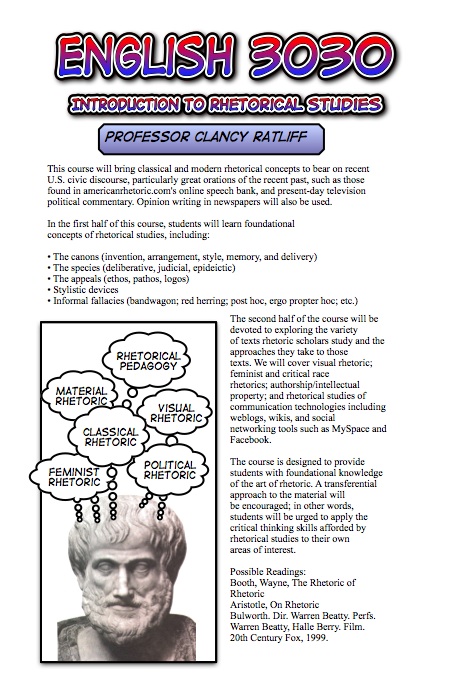I went to two three-hour-long grant writing workshops last Thursday (really!), and in the course of those, the speaker was talking about how some reviewers are well qualified to evaluate research in your particular field, but others, while very intelligent, well-read, educated people, are not experts in your specific area and can't look at your CV and know whether or not to be impressed; they don't know whether the journals you've published in are the best or not.
That got me to thinking -- I do know what the best journals are in my field (one would hope!), but I don't, in fact, have as firm a grasp as I would like on what the top-tier journals are in other subfields in English studies or in related fields. Yes, I know I could just look at the MLA index of periodicals and review all the acceptance rates, but I want to hear from people in these fields; I want to know which journals have the most cachet, and this may not necessarily line up with acceptance rates.
Here's what I do know, and I'd like you to help me fill in the blanks. Please suggest journals in the comments, or if you don't want to register, you can use my contact form. [I'm adding to this list as I get suggestions. I still have more to add, but this list has been updated on 15 October.]
Rhetoric and Composition: Rhetoric Society Quarterly, College Composition and Communication, JAC: A Journal of Composition Theory, College English. Those seem to be considered the best. Also very good are Journal of Basic Writing, Pedagogy, Rhetoric Review, Rhetorica, Computers and Composition, and Teaching English in the Two-Year College.
Literature
general: PMLA, obviously; ELH...what else?
medieval: Speculum, Journal of Medieval and Early Modern Studies, Exemplaria, The Journal of English and Germanic Philology, The Chaucer Review, Saga-Book, Scandinavian Studies, Studies in Medievalism
manuscript studies: Manuscripta
Anglo-Saxon studies: Anglo-Saxon England
Renaissance/early modern: Renaissance Quarterly, Sixteenth-Century Journal, The Shakespeare Quarterly
17th century:
Restoration/18th century: Eighteenth-Century Studies, The Eighteenth Century: Theory and Interpretation, Eighteenth-Century Life, Eighteenth-Century Fiction.
19th century British:
American (general): American Literature, American Literary History.
British (general): Journal of British Studies
18th/19th century American: Early American Literature
20th century British: I know Modernism/Modernity and Modern Fiction Studies are both good, but what else?
20th century American:
African American:
postcolonial:
literary criticism/theory: Critical Inquiry
children's literature: The Lion and the Unicorn, Children's Literature Association Quarterly. Also good: Canadian's Children's Literature/Litterature Canadienne pour la Jeunesse
performance studies: Text and Performance Quarterly (is performance studies the same thing as studying drama?)
science fiction: Science Fiction Studies
film studies:
multicultural literature/ethnic studies: SAIL (Studies in American Indian Literatures)
gender studies: I know some good ones include Signs, Feminist Studies, Hypatia, Feminist Teacher, Legacy
philosophy:
history: American Historical Review
classics:
...and any other fields you'd like to add.



